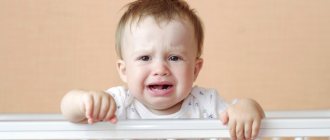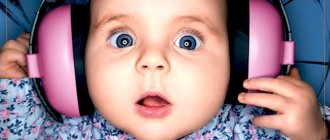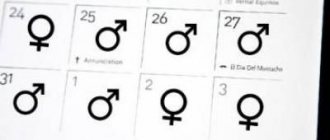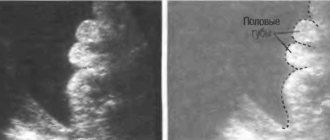The pacifier has practically become a member of the family, its absence causes an immediate hysterical roar in the child and all household members, but do you think it’s time to end this? We’ll tell you how to wean yourself off the pacifier without unnecessary nerves and whether you need to do it “on purpose” in our material today.
Many children are not familiar with the pacifier. Moms say, “It didn’t work” and “I never took it.” Such children are most often breastfed and satisfy their sucking reflex and need for protection on their mother's breast.
Another part of the kids are ardent fans of pacifiers; these are for the most part “artificial”. For them, a pacifier is an important condition for peace of mind. But if your child is about to enter kindergarten, then it’s time to become independent from the pacifier.
Getting angry with a child and demanding “give it back immediately, you’re already big” is a recipe for tears and even psychological trauma. We offer you several clever and even funny life hacks that will help you wean yourself from sucking a pacifier without unnecessary hysterics.
Benefits and dangers of using a pacifier
Opinions about the dangers and benefits of such an attribute as a pacifier vary greatly. Parents must decide for themselves whether they will teach their child to use this item. To make the right decision, you need to study all the arguments for and against a pacifier. Using a pacifier provides the following benefits:
- The baby's sucking instinct is satisfied.
- Protective function. Research has shown that using a pacifier reduces the risk of sudden infant death.
- Calming effect.
- When flying on an airplane, sucking a pacifier will not only calm the baby, but will help withstand pressure changes and get rid of ear congestion.
- It is much easier to wean a child off sucking a pacifier than from sucking something else, such as a finger..
In the first year of life, babies have a very developed sucking reflex.
We can say that he prevails over the others. It appears in the womb, where the child sucks his finger or fist. After birth, this reflex is directly related to feeding. When breastfeeding, it is usually completely satisfied with the help of the mother's breast. But it is not always available. Then a pacifier comes to the rescue. If the baby is fed artificially, that is, using formula in a bottle, then the pacifier becomes physiologically necessary. It is given to the newborn after each feeding to satisfy the sucking reflex. To develop the correct bite, it is better to use a specially shaped pacifier (orthodontic).
This is due to the fact that the pacifier prevents the tongue from sinking and prevents sudden cessation of breathing during sleep. In addition, it prevents the baby from choking during sudden regurgitation.
With the help of a pacifier, the baby calms down, falls asleep better, and can endure the necessary procedure.
If a child has a need to suck, he will still fill it, but with the help of another object.
In principle, it has not been proven that a pacifier can cause any harm to the baby’s health. However, its use also has disadvantages:
- By the end of the first year, the sucking reflex fades away and sucking a pacifier becomes a conscious habit that, sooner or later, needs to be gotten rid of.
- Using a pacifier on a breastfed infant may adversely affect the establishment of lactation .
- Children who suck a pacifier for a long time have poor speech development and may have problems pronouncing many sounds;
- Chronic pacifier sucking increases the risk of ear infections
- Hygiene rules are not followed
- Developing dependence on pacifiers.
- If parents, instead of paying attention to the child, calming him down, playing, simply give him a pacifier, then this can negatively affect the formation of his personality.
This does not always happen painlessly;
It is better to put the baby to the breast more often until constant milk production is established;
Especially if the baby has a stuffy nose;
After all, the pacifier often falls, especially if the baby is already moving on his own, he can put the dirty pacifier in his mouth;
If you constantly suck on a pacifier for a long time, the child cannot calm down without it and experiences discomfort;
Moms and dads will also find it helpful to learn how to teach your baby to sleep on his own, when to potty train, and how to wean off breastfeeding. We also recommend that you pay attention to the material about the norms of speech development, so you can notice diseases in time, for example, dysarthria. Read about how to teach a child to talk at 2 or 3 years old in separate materials.
How to wean a child off a pacifier?
In the first months, your baby constantly needs your care and there is not a minute of free time left. So your dreams consist of a cup of tea while the baby falls asleep for a while, a call to a friend who has called a thousand times already, but you were never able to talk, a peaceful sleep for at least one night... The pacifier has become your reliable one for a while assistant and comrade-in-arms, but the time will come when it’s time to say goodbye to this item. How to make sure that separation does not cause trauma to your baby?
Why does a baby need a pacifier?
A newborn baby initially develops a sucking reflex. The baby's need for sucking is very high in the first four months. Many newborns have poor use of their hands, so if you introduce a baby to a pacifier before he learns to suck his thumb, this problem will not arise, since its main cause is an unsatisfied sucking instinct, which varies from child to child. Pediatricians believe that breastfed babies are less likely to suck their fingers. If a child sucks his thumb before feeding, it may be from hunger; if after, it means that his sucking reflex is not fully satisfied, and you should immediately offer him a pacifier. Doctors recommend considering the sucking need, first of all, as having a physiological nature. Most children in the first months of life find sucking a pacifier or thumb a fairly effective sedative that helps them fall asleep more easily and creates a feeling of security and comfort. As the child grows up and gets acquainted with the world, he finds other means of calming down, for example, the participation of his parents; over time, he forgets about the pacifier and uses it only to fall asleep, and then completely abandons it. This usually occurs in the first or second year of life.
Why are pacifiers harmful?
From the point of view of psychologists, there is a rather tough position: a pacifier disconnects children from the outside world! There is no reliable data to support this theory. Most likely, it is not the pacifier that is to blame, but the parents’ desire to occupy the child with it, instead of paying enough attention to him. By the way, it is the kids who lack communication, care and parental love, who feel constant psychological discomfort, who are much more dependent on the pacifier than their happier peers. On the one hand, of course, with a pacifier in the mouth, a child cannot conduct research, but this is a necessary stage called “everything in the mouth!”: lick, suck, chew - the baby “tastes the world,” thus expanding his horizons. At the same time, children, seemingly unaware of this theory, calmly spit out the pacifier when they need to explore something, and then return it to their mouth.
But the opinions of speech therapists are divided: some claim that children begin to speak late because they had a pacifier in their mouth and distracted them from the need to pronounce words and sounds, others, on the contrary, say that the pacifier helps train the speech muscles. It is extremely difficult to set up an accurate experiment, because there is no way to trace how the speech of the same child develops from birth to school, first with a pacifier and then without it. If mothers stop breastfeeding their children early, then the child does not have time to “pump” the corresponding facial muscles. The fact is that when sucking, the tip of the tongue, the most important participant in the speech process, actively works. If, in addition, mothers strive to accustom their children to a cup and spoon as early as possible, then the babies do not have time to properly suck the nipple on the bottle. Sucking is a very important process for a child. Its deficiency can have a variety of negative consequences - both emotional and speech therapy. In addition, children, even after a year, eat more and more crushed food - homogenized purees, instant cereals, yoghurts. That is, for the most part, children do not chew or gnaw, which means they do not train their muscles. The most common opinion about the dangers of a pacifier is that it can interfere with the correct formation of the bite[1]. Dentists warn that excessive use of a pacifier artificially creates malocclusions: the jaws do not close, as a result, the upper teeth stick out forward, and the lower ones “lie” in the mouth. If you, or rather, your baby, can do without a pacifier, do so. Try not to let the situation get worse. However, for artificial babies, a pacifier is simply necessary if their sucking instinct is not satisfied by sucking on the nipple of a bottle. But, in any case, you should not abuse them. Try not to keep the pacifier in a visible place all the time, otherwise your baby will be tempted to keep it in her mouth all the time. During sleep, it is better to remove the pacifier from the baby's mouth, but leave it nearby on the pillow within reach.
When and how?
The third – sixth month of life The first signs of readiness to give up the pacifier are observed in the child precisely at this time. If a child falls asleep without a pacifier and does not show interest in it until he sees it, it’s time to “seize the moment.” You shouldn't throw away your pacifier on the first day when your baby starts sucking less. His need to suck can't be reduced so dramatically. Following the child's wishes, begin to wean him gradually. Try telling him a bedtime story, singing a lullaby, occupying his attention until he falls asleep. During the day, try to entertain the baby with interesting games, walks, try to distract him as much as possible. From six months to two years If you were unable to wean your baby before one year, don’t be tormented by questions like: “Isn’t this harmful for the child? Isn’t it strange that at eight months a baby often asks for a pacifier, and at some moments he won’t part with it at all?” And then the grandmother, wise in life, casually remarks that “in her time, children under one year old did not go with a pacifier,” a friend’s daughter did not recognize the pacifier from the very beginning, she falls asleep on her own. And the kind neighbor Aunt Masha states that she heard somewhere that “this is very harmful for the bite, and for something else.” And so you, having listened to enough advice and wishes, at the same time “twisting” yourself about “why, I don’t care about my child at all,” take away from the child, who does not understand anything, his favorite toy, to which he has been accustomed since birth and thanks to which he falls asleep better . Perhaps the child will tolerate this calmly and simply get used to sleeping without a pacifier. But there is a high probability that the weaning period will be quite long and psychologically difficult for both the child and the parents. Be patient and understand: for the baby, this is the first parting in his life with the usual way of his little world; sucking before bed is a kind of ritual, after which he is used to falling asleep well. Don’t take his reluctance to give up the pacifier as a whim - after all, we adults also don’t like to give up our habits, although we understand that some of them are harmful. The baby still does not understand what is harmful and what is useful, especially since his mother gave him a pacifier. If you feel that your child needs a pacifier, do not pay attention to what neighbors or relatives say. In any case, this is your child, and only you and him know better what he needs now. If you want to wean off the pacifier abruptly, think about whether this will cause psychological trauma for him, because if the baby is attached to his first friend and favorite toy, weaning will in any case become stressful for him. For a child, harshness is incomprehensible; he is accustomed to your care and attention to his every step. So treat this with sensitivity, listen to him and his needs. It would be wrong to take the baby's pacifier by force or pretend that you have lost it at a time when the child is uncomfortable and begs you to give it to him. There is no need to get angry with your child or tease him about this. The baby needs to be helped to “outgrow” this habit. Try not to miss the moment when the child is ready to give up the pacifier - this is the best way to part. This may not be the best moment for you. After all, out of habit, he may begin to sleep worse, it will be more difficult to calm him down while crying, etc. To speed up the process of weaning off the pacifier, psychologists recommend the following:
If the child first learned to drink from a cup (seven to eight months), food should also be served in a cup (bowl, plate) so that the bottle is forgotten more quickly.
Under no circumstances should you offer your child a pacifier (unless he himself persistently demands it).
It is also important that the child can satisfy his need to manipulate objects by developing his fingers. He should always have toys at hand so that while playing with them he is distracted from the pacifier.
After two years, you can try to tell your baby a fairy tale about someone small and defenseless, who now needs a pacifier just as much as he needed it when he was very little. And there is absolutely no place to get a pacifier for a baby from a fairy tale except from your baby. It is necessary to help speed up the process very carefully. For example, one day “lose” a pacifier at home and see what happens. If the child is against it, immediately “find” the loss. If you see that your little one falls asleep without a pacifier, but still does not refuse to take it: start putting him to bed without it. During the day, just try to keep your favorite item out of sight, but if he “discovers it and demands it,” give it back without arguing. Don’t focus on the pacifier, but understand that every “puncture” you make is an extra reminder, which means a step back on the path to getting rid of the habit. Remember that now your baby needs you more than usual. Plan to spend more time with your baby. Don't forget - there may be times when an old friend is needed: for example, if the baby is moping because of a new tooth or after a vaccination. Surely the baby has some wish that you can fulfill. Invite him to ask the Good Wizard for what he wants, who will fulfill his cherished dream in exchange for a dummy. Perhaps the child will be so happy that he will forget about the pacifier. Try cutting your favorite pacifier with scissors, and sympathizing with the baby, explain to the child that old things deteriorate and break when they are no longer needed, that he has already grown up, that’s why the pacifier broke. If the baby does not yet understand that you can buy a new one, he will most likely quickly lose interest in it. Another way: you can “damage” your favorite pacifier by cutting off a small piece of it every day until only one ring remains. Answer the questions that probably some mother animal really needed a pacifier for the babies, so she stole a little bit. Perhaps the little one will carry the ring with him for some time or fall asleep with it. There is nothing wrong with this, but the habit will gradually be forgotten. You can tell your child a touching story about Carlson (the bird, the bee), who flies in the evenings to get a pacifier for the baby living next door, who cannot sleep without it. And Carlson chose our house because he saw that you were already big and could sleep without a pacifier. In a family where a child has a little brother or sister, you can ask to give the youngest your pacifier, since his was lost, and he is already big and, of course, can cope without it. Just don’t forget to hide that “lost” pacifier! If a child lives normally without a pacifier during the day, but only needs it to fall asleep, you can try giving him a favorite toy in his crib. And at first let him sleep with both. And then, if enough attention is paid to the toy, carefully take the pacifier away. But return it immediately if the baby asks. You can also ask him to give the pacifier to his favorite toy. But the most important thing: if you wean your child at a conscious age, you need to come to an agreement with him. This should be his solution, perhaps suggested by you. Some children do not take a pacifier at all. Some people cannot live without her at all. Some people become independent early, while others cannot get used to being separated from their mother for a long time, even for a short time. The child has his own schedule and your task is to help him give up this habit exactly at the moment when the baby is ready for it. The child will definitely understand that he no longer needs a pacifier. Your task is to confirm the correctness of his thoughts. There is no point in forcing your child to give up the pacifier. Your baby will leave her one day anyway. You just need to properly prepare him for this. If you want to wean your baby off a pacifier without damaging his psyche and health, you cannot:
Use “old proven” methods like putting mustard on the pacifier. Imagine yourself in the place of a child: you would not have endured this easily!
“Soak” the pacifier. The danger that he will choke on fragments of it is much worse than the extra months of sucking.
Yell at the baby.
Scare a child. All the problems that can arise from a pacifier are much less terrible than psychological trauma leading to neuroses.
Tease the baby. This will either offend and upset him, or out of spite he will not give up the dummy for even longer.
Deceive a child. If he catches you cheating at an early age, you may lose his trust.
Yulia Krasheninnikova, psychologist
Source: https://www.2mm.ru/
When to wean
When and how to wean a child from sucking a pacifier should be decided by the parents themselves. In many Western countries and the United States this question does not arise at all. People are more accepting of this habit. In any case, the child will sooner or later give up this habit. The harm from it still has not been proven.
However, domestic experts pay more attention to this habit. Many people believe that it is best to stop sucking pacifiers after 6 months to a year. They substantiate their opinion by the fact that using a pacifier is inappropriate after the sucking reflex has faded.
If parents do not adhere to this recommendation, and the baby continues to suck a pacifier even after a year, then the following features may prompt the decision to give up this habit:
- The child constantly sucks on a pacifier;
- The baby prefers the pacifier to playing and communicating with other children;
- The child has a speech delay;
- The baby has already sufficiently mastered the use of utensils: a plate, spoon, cup, sucking fades into the background, new interests appear;
- After three years, a child continues to suck a pacifier.
These moments should prompt parents to think about weaning their baby off the pacifier.
Is there any benefit? Experts' opinion
What pediatricians say
Most pediatricians are not enthusiastic about the idea of using a pacifier. The very essence of the sucking process is to eat breast milk, calm down and fall asleep. Sometimes children, in addition to eating, need to satisfy the sucking reflex.
Not everyone can afford to let their baby “hang” on their chest all day. In addition to maternal responsibilities, a woman also has her own affairs: to clean herself up, prepare dinner for dad, etc.
If the mother has enough milk or even an excess, then sucking a pacifier is the choice of the parent and child. With a pronounced sucking reflex, this is the only salvation for the mother. When a baby sucks, as a result of the work of the facial muscles, blood circulation in the brain improves. As the baby grows, sucking movements lose their relevance. A child who is fed breast milk can be weaned off the pacifier from six months without injury.
It is strictly not recommended to give a pacifier to a newborn baby. If the baby's energy is spent on sucking a foreign object, then the amount of breast milk will inexorably decrease.
You can offer your baby a rubber assistant only after you are sure that the amount of breast milk produced is adequate to the baby’s needs.
Psychologist's advice
If the baby requires a pacifier while awake, this indicates that his cerebral cortex is excited - sucking relaxes the baby and he calms down.
Dentist's opinion
Nipples have long been a natural part of children's everyday life. But dentists object to long-term use of a children's device, because it affects the formation of bite in children.
Dentists insist on carefully selecting the type of pacifier. If the baby is not offered a pacifier, then he will find a way to satisfy the reflex with the help of other things, for example, a finger or the edge of a blanket, the back of a hand, or a toy. Using a pacifier makes this process more controlled (it can be sterilized and selected according to shape and age). It is easier to wean an adult child from sucking a pacifier; with older children, this process can already take place consciously.
Breastfed children, as mentioned above, do not need to use a pacifier. A different situation arises with babies who are fed formula.
The sucking process is very complex. This is a complex interaction between the palate, tongue and lower lip. All of them are involved in the correct formation of the lower jaw and bite. A pacifier, in fact, is a small orthodontic device that, with small forces, but for a long time, affects the formation of the jaw and teeth. That is why nipples are divided into several types:
- anatomical or physiological;
- orthodontic.
An anatomical pacifier is a regular nipple, the end of which is shaped like a ball or a cherry. Almost all children in the USSR used such pacifiers; unfortunately, they are still produced today. Using such a pacifier is possible, but for a short period of time, otherwise it can cause significant harm to the baby’s bite .
It is advisable to pay attention to the last option. It has a beveled shape so that the tongue is forced to occupy a certain position, and a correct bite is formed. In the process of sucking the breast, the lower jaw moves forward a little, and the orthodontic pacifier also forces it to behave.
Another advantage of the orthodontic “assistant” is that it easily slips out of the child’s mouth during sleep. Parents do not need to get up and take the pacifier from a sleeping baby.
If a child is bottle-fed and the nipple has an undesirable shape, then there is a high probability of underdevelopment of the lower jaw and even retraction inward. This is very unsightly and entails many problems with the teeth and subsequently with the digestive tract.
Depending on the material, pimples are:
- latex or rubber;
- silicone.
Rubber has a not very pleasant bite. The protein that latex contains can cause allergies. Latex nipples are recommended for weakened babies who are unable to extract milk from the breast on their own.
The disadvantage of such nipples is that saliva can accumulate in them - an environment for the development of bacteria. A latex pacifier should be changed no later than once a month .
Silicone is an inert material, it does not cause adverse reactions, has no taste or smell. Another advantage of this pacifier is that it is very dense and almost impossible to chew. This becomes relevant for older children.
Effective ways
There are quite a few ways to wean a child from sucking a pacifier. It is important to choose a method that is right for your child, without causing him psychological trauma.
- Explain to the baby that he is already big and does not need a pacifier.
- You can “lose” a pacifier.
- Offer to give the pacifier to someone else , for example, a familiar baby.
- Make up a fairy tale story that a cat, dog, etc. took the pacifier.
- Gradually cut off a small piece from the pacifier every day until it runs out ;
- There are tips to smear the pacifier with something tasteless , but it is not advisable to use them;
- Some parents simply stop giving a pacifier , despite all the child’s whims.
There have been cases where parents actually lost their child's favorite pacifier. The baby, being capricious, gradually forgot about her;
You can exchange it for a toy or candy;
Say that she chewed or ate it;
This method can psychologically traumatize the baby. It’s better to try to explain your behavior to him, to somehow distract him from his worries.
Why do kids get so used to it?
Experts explain the issue of children getting used to a pacifier by the fact that it not only reminds them of their mother’s breast, but also gives them a feeling of peace and security.
When babies suck, pain is reduced as endogenous painkillers are produced. In premature babies, using a pacifier helps develop sucking, swallowing, and breathing reflexes. Getting used to feeling peace and satiety when sucking from infancy, it is difficult for a child to give up the pacifier at an older age. This is especially pronounced if the baby lacks the attention and care of his parents.
Very often, the pacifier serves as a distraction for parents so that they themselves do not have to strain to calm and entertain the child.
Coming to bed. Problems falling asleep
Very often, when weaning a child off a pacifier, difficulties arise precisely when putting him to bed. The baby is used to falling asleep with a pacifier and cannot fall asleep without it. Whims and hysterics begin. In such a situation, the physical fatigue of the baby will help a lot. Walk with him longer, play outdoor games, before going to bed at night, you can take a long bath in cool water so that the child spends as much energy as possible. Before going to bed, you need to feed him well, then the baby will fall asleep faster and sleep longer. It is worth being patient and overcoming this small difficulty.
Cancellation up to 1 year
For a baby under one year old, it is better to wean off the pacifier smoothly. You should give the pacifier less and less throughout the day. It is good to feed before bed so that you can sleep longer, especially at night. Distract the baby with games, stories, new impressions. Gradually the need for pacifiers will disappear.
At night after long water procedures, you can give your child a relaxing massage. When going to bed, read a fairy tale, sing a song, develop your own special ritual. Then the one-year-old baby will learn to fall asleep without a pacifier.
General recommendations for ditching the pacifier
All children are different, and therefore there is no single recipe for weaning a child from a pacifier. However, thanks to the observation of mothers and the experience of doctors, this is much easier to do today than 50 years ago.
So, general advice on this matter would be:
Don't force a pacifier if you don't need it
If your child feels wonderful without a pacifier from the first days of life, does not put his finger in his mouth and falls asleep well, you should not impose it on your baby at all.
Communication is the mother of unlearning
If you communicate with your baby throughout the day, demonstrating the beauty of the world around you and its features, he simply will not have time left for friendship with the pacifier.
Drinking is not harmful to health
If you teach your baby to drink from a mug around six months, he will quickly master the swallowing reflex and lose the need for bottles and pacifiers.
Bedtime story - problem solving
If you tell your child fairy tales before bed, then by the age of one year the pacifier can be replaced with a whole series of exciting stories.
Daytime games are so much fun!
If a child plays with blocks and pyramids throughout the day, he will not be distracted by simple sucking.
Out of sight, out of mind
If you yourself do not persistently offer the pacifier to your child and begin to remind him of its existence, he may well forget about it in a couple of days.
We wean at the age of 2 years
Weaning a child off a pacifier at 1.5 or 2 years is in some ways even easier. He already understands a lot. Explain that he is already big, knows and can do a lot, and doesn’t need a pacifier. Convince to give a pacifier to another baby. You can buy a toy instead. According to parents, during this period, refusal is the most painless for the baby.
Children at this age are very caring, so it is quite possible to tell a story about how another baby, brother, sister, or, in extreme cases, a kitten or other animal needs a pacifier. But if a two-year-old baby doesn’t want to give him the pacifier, don’t call him “greedy” or scold him.
Try another method a little later. Some children are very jealous of their things, and their right to property must be respected from childhood.
Why does a child need puzzles? What educational games are needed? How to develop perseverance and attentiveness in a child?
Four methods of giving up pacifiers
Today, there are several effective ways to wean a child off a pacifier.
Smooth withdrawal: for children up to 1-1.5 years old
Smooth withdrawal involves getting rid of the pacifier over a few weeks.
According to this method, it is necessary:
- do not take the pacifier with you outside;
- hide the pacifier away during the day;
- teach your child to drink from his favorite cup;
- keep your child busy with exciting games;
- put a favorite toy in the child’s bed so that he feels protected;
- You should not leave the room until the baby falls asleep.
After some time, after taking the above measures, the baby will forget about his not so long ago beloved “friend”.
Abrupt refusal: for children aged 1.5 years and older
Abrupt refusal is a way to get rid of the pacifier for babies who already understand their parents well.
For it to work, you must select one of the following options:
- solemnly present the pacifier to the newborn baby. Since your child already realizes that he has become an “adult,” it will not be difficult for him to give a girlfriend to a baby who needs her more;
- send the pacifier on a long voyage: a small fish or a little gray bunny needs it so much! After all, only a pacifier can protect them from Barmaley in the dark forest;
- Throw the pacifier out the window or trash. True, this option is not suitable for all children, but only for the calmest and most flexible ones.
After saying goodbye to the pacifier, you need to give your child something very good, and be sure to note that only independent children play with such valuable toys.
Cancellation within a week - is it possible?
Some mothers share their stories on forums about how to wean their child off a pacifier in just a week.
We cannot help but tell you about this method. However, only practice will show how effective and applicable it is for you.
Action plan:
- Give your child a pacifier for 5 days, 2 times less than usual (not for 30 minutes, but for 15, not for an hour, but for half an hour).
- For the next 2-3 days, offer the pacifier only at night. In this case, it is better to give it for a few minutes, and then replace it with breasts.
At the same time, do not “push” a pacifier into the child’s mouth just like that, but only when he really needs it.
STOPPI for children from two years old
Modern medicine has come up with another effective way of weaning off the pacifier, which is simply called “STOPPI”. This is a special orthodontic plate that must be given to the child instead of a pacifier.
Manufacturers claim that just a few weeks of using this plate can wean your baby off the pacifier forever (the use of “traditional” pacifiers during this period is not allowed).
A small disadvantage of “Stoppie” is that it can only be purchased in pharmacies, and it is only suitable for older children (2 years of age or older).
How to wean a 3 year old child off a pacifier
Many parents are not very worried about their child sucking a pacifier even after 3 years. However, in our society this is often frowned upon. They look askance at the child and parents. Many follow the lead of public opinion and urgently wean a three-year-old child from a “bad” habit. Of course, children after 3 years of age do not really need a pacifier and the weaning process will be easier. You can simply tell the baby that he is already an adult, and adults do not suck on a pacifier. At this age, children become aware of themselves. They want to appear more mature, and they are quite capable of giving up a pacifier for this.
You can “lose” a dummy, and in return buy a new interesting game. The main thing is not to scold or shame the baby. It is necessary to behave calmly and firmly.
Myths about nipples
There is a lot of discussion around nipples about their harms and benefits. Many assumptions are obviously incorrect. There are such mythical statements:
- You can't do without a pacifier when teething. This is wrong.
- Every baby needs a pacifier. This is not true.
- It is better for a child to grow up without a pacifier.
- Pacifiers are harmful to the baby's health.
- If the pacifier falls, you can lick it and give it to the baby.
- All nipples are safe for baby. Basically like that. All nipples are certified. But it is better to buy pacifiers in trusted places.
The pacifier, of course, helps, but it is better to use special teethers that are designed specifically for this purpose.
Many children, especially those who are breastfed, can do without it. And some do not accept this subject at all.
Of course, you can do without a pacifier, especially if you have breasts. But sometimes a pacifier is an indispensable sedative.
Scientific studies have shown that pacifiers do not affect the baby's health.
They won’t even ruin a child’s bite. You can use an orthodontic pacifier.
Do not do this under any circumstances!
In the saliva and oral cavity of any adult there are a lot of pathological microorganisms, even in the absence of a source of inflammation in the mouth. This can be harmful to the baby's health.
It is necessary to monitor its condition and change it in time when it wears out, so that the child does not accidentally bite off a piece and choke.
Why a pacifier can be dangerous
Although it has already been scientifically proven that the pacifier cannot cause any harm to the child’s health, and the crooked teeth are not at all related to whether the child sucks on a pacifier or not, there is a negative aspect of this phenomenon that those who are wondering how to wean their baby from nipples.
In the seventh month of a baby's life, the sucking reflex naturally fades away. Until this age, a child simply needs to suck in order to eat, but for an older baby, sucking a finger or a pacifier is already a bad habit. But parting with the pacifier is difficult because the process is reminiscent of mother’s care and evokes a feeling of security. It is very difficult to say goodbye to this, but the child needs to gradually grow up.
Children who cannot refuse a pacifier for a long time are socialized later - they begin to talk later than their peers. A pacifier in a baby’s mouth prevents him from repeating the sounds and words that adults pronounce. Lack of development of speech and communication skills leads to underdevelopment of thinking.
Very often, too busy parents who do not spend enough time with their child are “saved” by pacifiers. Such a child grows up infantile, lethargic, and is not interested in anything. In this case, sucking helps the baby compensate for the lack of parental love and attention, because the child feels forgotten and unwanted.
The best time for babies to be weaned off the pacifier is around eight to nine months. Of course, nothing bad will happen if the baby continues to suck a pacifier even until he is two or three years old, but it is advisable to wean him off as early as possible. To understand how to wean a child off a pacifier (pacifier), you need to understand why the baby is attached to this habit.
Rules for parents. Don't make mistakes
- Keep calm.
- Do not use the method of weaning off the pacifier by smearing it with something that does not taste good.
- After all, at this time he tastes everything, including the taste.
- Do not compare your child with other children, do not set them as an example. Each child is individual.
- You need to learn to accept him as he is and not compare with others.
- Don't follow your child's lead.
- If you have already decided to wean your baby off the pacifier, then his tantrums and whims should not change your decision. Otherwise, he will learn to manipulate his parents.
This can affect the baby's active exploration of the world.
And the fact that a familiar object suddenly greatly changes its taste properties can greatly frighten a child. Will cause fear of the unknown.
Comparison unfavorably with peers humiliates the child, lowers his self-esteem and forms complexes.
False beliefs about pacifiers
Excessive attachment to a pacifier is not an addiction that is extremely difficult to get rid of. This is simply one of the myths. The practice of using this item is replete with misconceptions. Here are some of them:
- Every baby needs to use a pacifier. A newborn baby is taught to use a pacifier immediately after returning from the maternity hospital, but the baby constantly spits it out. Don't force your baby to put a pacifier in his mouth - if he doesn't want to suck on the pacifier, leave him alone.
- When teething, a pacifier is a must. In fact, it is better to use special rings with coolant inside. They ease the child's suffering and massage the gums.
- It is completely contraindicated to “disinfect” a baby’s pacifier with parental saliva. In the mouth of even a completely healthy adult with absolutely healthy teeth and gums there are many bacteria that can harm the delicate body of a baby. If the pacifier falls on the floor, it is best to sterilize it and give the baby a new pacifier.
- In order to quickly wean a child off the pacifier, you need to smear it with something bitter, mustard, for example. This should under no circumstances be done. An unusual and unpleasant taste can cause severe stress in the baby, which in the future can even lead to digestive disorders.
There are painless and non-traumatic ways to wean your baby off the pacifier.











